
With its various research platforms, DIL has exceptional R&D capacities that can be implemented effectively with support from the business divisions. The institute is always expanding its multifaceted research spectrum and adding new competencies.
At the forefront lies the creation of user-defined functionality, in other words, the manufacturing of food with specific quality features. Research further focuses on detecting and resolving on quality defects as well as research for interfaces and emulsifiers.
One of the main benefits of this research platform is the potential offered by its machines and methods. They can be used to study a broad spectrum of physical and physical-chemical material properties. The required chemical and microbiological analyses are also carried out in DIL’s labs. The scale-up needed for the development process is done in cooperation with the other divisions.
The biotechnology platform’s focus is on research and development in the area of the use of biological resources for creating sustainable products and processes, which contribute to the design of foodstuffs that are safer and more attractive. The main focus of the work is on innovative concepts for biological control (biocontrol) along the entire food chain (‘from the field to the plate’), which will ultimately guarantee the safety of the food we eat.
This work focuses on, for example, the use of useful microorganisms in so-called food cultures (starter or protective cultures), or the inhibition or reduction of unwanted organisms (pathogens and spoilage microorganisms) by living microorganisms and/or their metabolites. By using particular characteristics of fermentation microorganisms, the sensory quality of the food can be changed, therefore increasing the products’ attractiveness.
But biotechnology also means using parts of living organisms to produce innovative products. For example, algae represent an alternative to the production of proteins. In future, they could be used for producing food that is rich in proteins, eg analogous to meat products. The use of isolated enzymes (polymerases) enables the development of quicker, safer methods for detecting pathogens in food on a genetic basis.
Ensuring a sustainable supply of protein is the basis for innovations based on research activities in the materials science field and the development of new technologies for raw materials processing. The Protein Technology research platform combines these skills.
When the Bio-Economy division was founded in 2012, it was accompanied by an extensive realignment and expansion of the research platforms. Since the realignment the DIL focuses on development in the fields of Petfood, Feed and Meat Technology. Together, these three areas comprise the Protein Technology research division.
These newly created capacities are the key to an integrated approach to global problems in the area of Bio-Economy.
The Petfood Technology division is primarily focused on the development of new product concepts based on alternative protein sources in light of the availability of resources. Research projects are currently testing the extrusion-supported substitution of plant-based raw material sources with insect meal. This could soon be a sustainable solution in the animal nutrition field due to the efficient farming options.
This way, the specialist division combines the process-technical expertise available at the institute with the know-how in the field of raw materials functionality and the possibilities of analysis. Over time, it will be possible to implement new equipment concepts in the DIL’s in-house mechanical engineering division. Activities in the Petfood field are to be intensified so that appropriate solutions can be implemented in cooperation with industry.
The activities of the Feed Technology division are divided into an analytical division related to food safety and a division in which process engineering solutions are developed. In addition to the grinding, mixing and dosing of the various components, structure-giving processes serve as an important tool for optimally adapting the use of energy, protein and fat to meet the animal’s needs.
Through the supervisory audit by the German Accreditation Body (DAKKS), new methods could be included in the testing range. The certification in accordance with DIN EN ISO/IEC 17025:2005 now provides the DIL with greater flexibility and efficiency in the application of its analysis methods.
In close cooperation with the DIL research platforms, innovative techniques for the preparation, enrichment and stabilization of agricultural raw materials are developed. In particular, research is carried out into methods for encapsulating liquids and solids to improve the efficiency of the raw materials used.
The research platform draws on solid expertise in the different areas of feed science. New findings are prepared and shared in a user-oriented way in collaboration with companies and through industry seminars on compound feed production hosted at DIL.
The research platform’s range of expertise extends from the development and application of new technologies – such as high pressure, ohmic heating and pulsed electric fields – through product development and comprehensive analysis. Particularly through the use of innovative technologies, various concepts were established which significantly increase the efficiency and quality of the meat production processes. Drawing on experience with the processes of structure formation, packing and preservation, new ways to streamline the production of meat products are identified and implemented with a focus on quality, efficiency and sustainability.
An example of this is the completion of a prototype system for continuous shock wave treatment of cuts of meat. The technology enables the tenderization of meat pieces within seconds, thus saving energy and money, and is on the verge of market readiness. In addition to the direct activities in research and development (R&D), cooperation with DIL partners was significantly intensified last year.
At the DIL many seminars, demonstrations and workshops with regional and international companies from the meat industry are organized. These activities aim to strengthen the direct dialog between developers and users and, on this basis, to enable effective transfer of this know-how to the industry. The response shows that the DIL has established itself beyond regional boundaries as a center of excellence in the Meat Technology division.
The Food Data Group serves as an interface between research platforms and business divisions. Cross-thematic and cross-sectoral research activities have been established to promote the structural change from an oil-based to a bio-based industry along with major opportunities for growth and employment. At the same time, international responsibility needs to be taken on the issues of the global food supply, the biomass-based supply of raw materials and energy, and climate and environmental protection. DIL is continually working to pave the way for bio-based food production. As part of these efforts, natural resources shall be used and new ways of using renewable raw materials are to be developed. This will be made possible through the development of new, bio-based production processes.
In this regard the research division Bio-Economy was able to enforce its research activities in the fields of alternative protein supply, analyses techniques and life cycle assessment. Moreover, DIL and its international partners are intensively engaged in AiF/FEI-funded research project regarding the development of innovative algae processing technologies. This objective not only serves to preserve our living space, but also improves product quality and is good for our health.
For many years, the Advanced Research Department at DIL (German Institute for Food Technology) has been working on the development of new technologies and their customised application in production processes. DIL's tried and tested technical expertise is fundamental for this development, as is the opportunity to construct new facilities on an industrial scale using special purpose machines built at DIL.
The institute focussed its development work on gentle applications to inactivate microorganisms (preservation) as well as physical capabilities for structure optimisation in the further processing of raw materials. The combination of technological capacities with comprehensive customer consultancy services enables the Advanced Research Department to execute pinpointed technology transfer, from a research environment to the practical world of food production.
ShockMeat, an EU project coordinated by DIL, involves the development of a new technology for the efficient tenderisation of packed meat products. DIL took on this challenge, conducting technical development procedures as well as the subsequent construction of a shockwave plant for continuous use.
Shockwave technology is undergoing further development in our current follow-up project to make it ready for industrial use. Shockwave technology makes meat more tender, using purely physical treatment. The advantage: Considerable energy savings made possible by shorter maturation times (from the usual 14 days, approximately, to two days in refrigeration).
This means that manufacturers can produce high-quality meat goods, reducing resource use to a minimum, passing on this added value directly to the consumer. During application, an energy storage system charged with around 40,000 volts discharges this energy into a water bath, generating a shockwave flowing through the water and the packaged product.
A research project conducted at DIL is examining the use of pulsed light and infrared radiation for surface decontamination. Options for decontaminating and improving meat product safety are currently being assessed. The technology can be utilised for fruit and vegetables, seeds or baked goods. A demonstration plant is being developed as part of the project.
The goal is to develop a procedure for surface decontamination of foods. Major advantages are demonstrated by lower energy requirements, short application times and the option for dry decontamination. In future, the procedures can be extended to packaged products such as meat and meat products.
Pulsed light application and systems for infrared or electron radiation treament are also available.
The use of pressure makes it possible for a variety of food preservation and structural modification methods to be applied. The DIL high-pressure application centre provides support to food manufacturers and suppliers of raw materials and plant equipment via evaluation studies on usability and attainable decontamination, the effects of process conditions on product properties and the lifespan of the facilities, as well as the possibility of carrying out contracted work.
A system with a capacity of up to 2 t/day is available for hydrostatic high-pressure treatment. It is particularly suited for extending preservation times of packaged products such as fruit and vegetable juices, gourmet foods, seafood and meat and sausage products. A pilot facility has been developed at DIL with an output of 380 l/h at a maximum pressure level of 3,800 bar for the continuous treatment of unpackaged products.
This procedure is known as ultra high pressure homogenisation, and enables the functionalisation and preservation of pumpable products in one step. For example, fat-reduced mayonnaise can be made using egg yolk as a natural emulsifier without further additives or thickening agents.
The application of brief high-voltage pulses (Pulsed Electric Fields, PEF) leads to gentle cell disruption in vegetable and animal cells. By identifying suitable applications and developing industrial plants, DIL has successfully transferred this procedure, known in biotechnology and medicine as electroporation, into the food sector.
The procedure is being applied primarily for potato processing, for chips and snack production, as well as for preserving fruit juices. Compared to conventional procedures, considerable reductions in energy consumption (up to 90%) and water (up to 80%) were achieved during potato processing. In cooperation with the spin-off company ELEA GmbH, the Advanced Research Department is now conducting research on further fields of application for food processing, the organic economy and (waste) water treatment.
In addition to using pulsed fields as a non-thermal procedure, other methods are being assessed for using electrical energy for targeted, rapid food heating (heating according to Ohm's law).
